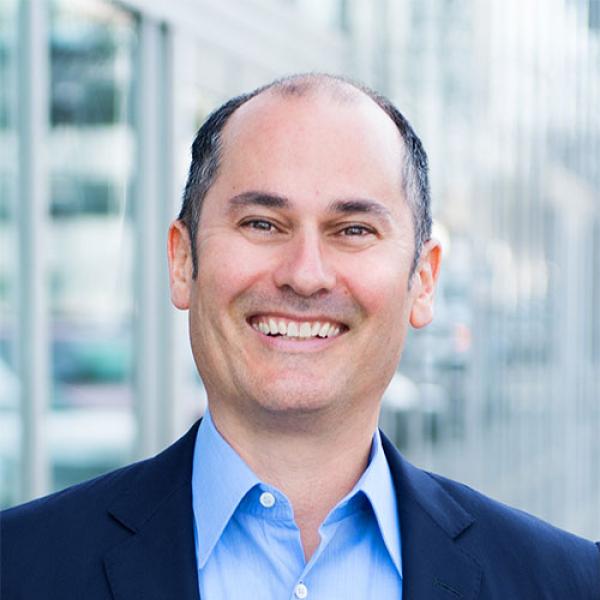Back to Blog
Oct 14, 2016
Keeping Up With The Kalish's - Patient Communication Skills
by Dr. Dan Kalish
Image

Key factors in improving patient communication skills include your confidence level, ability to explain complex concepts in simple ways using stories and analogies, and creating a sense of relevance and urgency for the patient to act. This article explores the underpinnings of communication skills, pointing out they take center stage in our ability to impact patient outcomes. It’s not just what you tell people to do it’s what they end up hearing and implementing that ensures successful clinical outcomes.
Patient communication skills come naturally to some. We all have met people in our lives who are “natural communicators”. Those that can communicate with strangers and patients with ease. During the initial patient consult we need to refine and develop these skills, creating a bond and a sense of reassurance that everything will be ok, combined with a motivation to do something on the patient’s part. There are even humans that can communicate - “whisperers” - with dogs even horses and the skill flows from an inner sense of knowing just how to connect. For the rest of us human to human communication is a skill to acquire, one that can be developed over time with practice by anyone determined to figure it out.
In our personal lives we communicate in order to get our physical and emotional needs met. We ask for a glass of water at a restaurant if thirsty or ask someone out on a date if we’re attracted to them. In the patient setting we have a very specific role to play and it crosses over and incorporates many aspects of communication from our personal lives but also has distinct differences which are critical to the process being successful. Patient communication at it’s highest level is most similar to the communication skills used by sales people and less like the type of communication you would look towards with a friend or loved one which is part of what makes it so confusing to do well.
It’s not an equal relationship. We don’t and should not self-reveal much, we’re not sharing with the patient, we are directing them. We need to get to know them intimately but it doesn’t help their process to get to know us at the same level. They need us to provide stability and a sense of clarity that we know what’s wrong and how to fix it and if running a cash practice we need to convince the patient to buy our services and products.
When I was in my first years of practice my mentor Dr. Glenn Frieder pulled me into his treatment room day after day and I was able to observe his communication skills. Still to this day I think of Dr. Frieder as the master of the art of communication. After about a month of Dr. Frieder observing me observing him he declared I needed to take communication workshops and figure out how to improve this vital skill. So I embarked on a several year journey of attending various workshops, reading many books and working one on one with communication experts. Once enlightened on this subject I was able to communicate information adequately to patients. There was, however, one vital step missing in the process and it took me another eight years and another teacher to understand this. Nina Rymer came along as an office manager when I opened my first clinic. She had a strong background in sales and marketing and understood basic concepts of business strategy. During that phase of my training with Nina as a business teacher, I focused on reading books and attending seminars about sales, marketing and business strategy and I worked closely with professional business coach, Lenny Coco. Lenny was a semi-retired doctor who’s first career was in sales and marketing and so he understood both sides of this equation.
Put together, these two skillsets will get you to your goals. We require both understanding the patient education, connection, compassion and empathy part, along with sales techniques. Mastering both has allowed me to be very successful in terms of patient outcomes. We are being paid to educate our patients as to what’s wrong and what they should do about it AND we are being paid to make sure the patient is motivated enough to be compliant with what are often emotionally challenging changes such as starting to exercise or eating different foods than they are used to or taking supplements on a regular basis.
These roles we play, as educator and motivator, as healer and as a seller of services, are intertwined and when patient communication is done flawlessly the patient education component becomes the motivating force in their recovery. The educational direction we provide becomes the sales pitch. The educational component of communication when done poorly falls on deaf ears and patients don’t implement the changes they need because they don’t see the value or importance of making those changes and the sales component of communication when done poorly undermines any potential for success because patients won’t buy the lab kits and supplement programs or won’t come back for follow up visits because you didn’t “sell them” on the value well enough.
For most healers, myself included, money is a negative force in the world. I was raised in Berkeley, California by liberal parents who were pro-academic and anti-corporate. I went to one of the most liberal colleges in the United States, Antioch College in Yellow Springs, Ohio, my college insignia suspiciously resembles the anarchy symbol. Profit and sales, bottom lines and pro-business concepts were all in the enemy’s camp. My team was for healing, sharing, community building and if forced to back an organization it’d be a non-profit. Profit meant nefarious activity. Sales meant ripping people off by tricking them.
Unfortunately we are living in a culture at a time where money dominates our daily lives and the exchange of money is how we establish value. Money motivates us in our work as much as we’d like to pretend it doesn’t. We need money in order to rent or buy a home, we even need large amounts of money to pay for our education as doctors. And in the exchange of doctor-patient in functional medicine with an all cash practice, there is an inescapable monetary exchange. The value of our services is pinned to us charging money for our time and the advice we give is interpreted through a value lens that is based on money. If I do a consultation for free to a patient, it is highly unlikely they will be successful in their program. The more I raise my hourly rates, the more active listening happens on the patient side, the more compliant they are with my lifestyle and supplement recommendation and the better results we end up with. I know this is sad and unfortunate but it’s the way our cultural mindset works.
I have found the exact same pattern for adherence to lab based supplement programs. The more money the patient spends on labs and supplements the longer we see compliance. Many of the programs I design require six to twelve months of supplement protocol adherence to be successful and the value that patient place on the program is directly related to the amount of money they spent on the supplements. The more they spend the more likely they are to complete the program because the amount they spend creates value in their minds.
It’s easy to observe this behavior in other facets of our lives. Have you ever had a $100 bottle of wine. Did you place more importance on that bottle than the bottle you paid $8.99 for? Of course. Even without any real quality difference in terms of taste we would all still be more careful in our handling of and have more reverence for the expensive bottle than with one that was cheap. Same with cars. I have a 1982 Mercedes which is worth about $6,000 and I drive it hard, park it wherever and in general don’t care that much about treating it well. My other automobile, an Audi S4 (it’s supercharged!) is a fast, sleek, speedy machine that is worth a lot of money and I treat it accordingly with a great deal of reverence. I’m so concerned with the Audi being damaged, I rarely drive it and enjoy just seeing it parked in the garage. How crazy is that?
We can create reverence for the human body, respect for nutritional foods, establish a reason to exercise and even get patients to meditate if we create value around our recommendations. As pathetic as it sounds, in our culture this means the more we charge the better results we will obtain. Discounting fees, trying to sell patients supplements on the cheap, all end up back firing in the long run and undermining the purpose of our work. If you feel as I do about money and were raised in the non-profit mode not the pro-business profit mode then still charge the fees, you don’t have to keep the money you can donate a percentage of your earnings to a group that needs the money more than you do. We’re not charging patients because WE need or want the money, we’re charging patients because it creates value, it communicates to your patient to take good care of their body they are the Audi S4 in the garage, every little thing they need to restore their health is a #1 priority. Food should be the best, organic and fresh, high quality supplements, pay for every lab test you can, let’s spoil you and treat you like your body is worth a million bucks. As we know, we only get this one body and in reality it's priceless.

